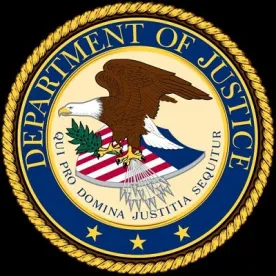Last month, the Civil Division of the Department of Justice (DOJ) announced the release of formal guidance to DOJ civil attorneys on how to award “cooperation credit” to defendants who cooperate with the Department during a False Claims Act (FCA) investigation. The formal policy, added to the Justice Manual Section 4-4.112, identifies the type of cooperation eligible for credit.
As announced by Assistance Attorney General Jody Hunt, DOJ believes the guidance reflects “important steps to incentivize companies to voluntarily disclose misconduct and cooperate with our investigations … False Claims Act defendants may merit a more favorable resolution by providing meaningful assistance to the Department of Justice—from voluntary disclosure, which is the most valuable form of cooperation, to various other efforts, including the sharing of information gleaned from an internal investigation and taking remedial steps through new or improved compliance programs.”
Under the policy, cooperation credit in FCA cases may be earned by 1) voluntarily disclosing misconduct unknown to the government, 2) cooperating in an ongoing investigation or 3) undertaking remedial measures in response to a violation. The first type of cooperation is straightforward: self-disclosure before a government investigation begins.
The second type of cooperation has two flavors. First, where the government has already initiated an investigation, a company may receive credit for disclosing other misconduct uncovered by the company through the course of its internal investigation that is unknown to the government. Second, DOJ lists 10 examples of other cooperative activities for which a company may earn credit for undertaking during an investigation, including
-
Identifying individuals substantially involved or responsible for the conduct;
-
Admitting liability or “accepting responsibility” for the conduct; or
-
Assisting the government in its investigation by, for example, preserving relevant documents and information beyond existing business practices or legal requirements, identifying individuals who are aware of relevant information or conduct, and facilitating review and evaluation of data or information that requires access to special or proprietary technologies.
The third type of cooperation involves taking into account remedial actions that a company has taken in response to a FCA violation. Such remedial measures may include
-
Undertaking a thorough analysis of the root cause of the misconduct;
-
Implementing or improving an effective compliance program designed to ensure the misconduct or similar problem does not occur again;
-
Appropriately disciplining or replacing those responsible for the misconduct;
-
Accepting responsibility for the violation; and
-
Implementing or improving compliance programs to prevent a recurrence.
In considering the value of any voluntary disclosure or additional cooperation, government counsel are instructed to consider the following factors: (1) the timeliness and voluntariness of the assistance; (2) the truthfulness, completeness and reliability of any information or testimony provided; (3) the nature and extent of the assistance; and (4) the significance and usefulness of the cooperation to the government.
DOJ states that cooperation credit will most frequently take the form of a reduction in the damages multiplier and civil penalties. However, DOJ says the maximum credit that a defendant may earn may not exceed an amount that would result in the government receiving less than full compensation for the losses caused by the defendant’s misconduct (including the government’s damages, lost interest, costs of investigation and relator share).
DOJ may also consider, in appropriate circumstances, additional avenues that would permit an entity or individual to claim credit in FCA cases, including
-
Notifying a relevant agency about an entity’s or individual’s disclosure, other cooperation, or remediation, so that the agency in its discretion may consider such factors in evaluating its administrative options, such as suspension, debarment, exclusion or civil monetary penalty decisions;
-
Publicly acknowledging the entity’s or individual’s disclosure, other cooperation or remediation; and
-
Assisting the entity or individual in resolving qui tam litigation with a relator or relators.
In the end, DOJ also preserves its option to not take into account a company’s cooperation when evaluating particular FCA matters, including the “nature and seriousness of the violation, the scope of the violation, the extent of any damages, the defendant’s history of recidivism, the harm or risk of harm from the violation, whether the United States’ interests will be adequately served by a compromise, the ability of a wrongdoer to satisfy an eventual judgment, and litigation risks presented if the matter proceeds to trial. Some of these considerations may reduce the credit available to an entity or individual, or in egregious circumstances, may render the entity or individual ineligible for any credit.”
Takeaway
To be sure, it is helpful to have a formal policy broadly articulating the types of cooperation DOJ considers meriting credit and what that credit may look like. Counsel can use this guidance when managing a FCA investigation and advocating for receiving such credit. That said, the main theme of the cooperation guidance is that DOJ attorneys retain considerable discretion in evaluating cooperation efforts and doling out credit. This leads to a lack of predictability in advising clients on what the likely benefits will be of undertaking certain cooperation activities, especially disclosing issues uncovered in response to an FCA investigation that are unrelated to the matter in which the government is investigating. Also, there is no guarantee that, even if the company undertakes significant cooperation activities, credit will be given depending on the DOJ attorneys’ view of the case.
Even with “credit” being given, the end result could still be a substantial payment. DOJ did not commit to any particular formula for applying cooperation credit, other than setting a floor at “full compensation for the losses caused by” the defendant. It is unclear what, if any, consideration is given to litigation risk in potentially reducing or discounting single damages. To the DOJ’s credit, saying in black and white that DOJ could settle an FCA matter for less than double damages is a welcome departure from DOJ’s historical position on self-disclosures and settlements generally. This policy shows at least a chance of resolving FCA matters for a lower multiple based on a defendant’s cooperative actions, even where the government does not face significant litigation risk.
Principal Deputy Associate Attorney General Claire McCusker Murray provided two illustrative examples of cooperation credit recently given in her speech at the Compliance Week annual conference.
-
First, she described a provider defendant’s cooperation with the government’s investigation as “disclosing additional violations outside the scope of the government’s original inquiry, and by assisting the government in calculating damages.” Ms. Murray said that “in exchange for this assistance, the government agreed to accept some of the reasonable, albeit conservative, damages assumptions proposed by the provider, and to publicly acknowledge the company’s cooperation.” This example suggests that, when damages calculations are complicated and subject to different approaches, the government may be willing to agree to an approach that is more favorable to the defendant as part of rewarding cooperation.
-
Second, Ms. Murray mentioned a manufacturer defendant receiving credit in an anti-kickback settlement for “shar[ing] the results of its extensive internal investigation and also helped the government assess its losses by developing a damages model. As a result of its cooperation, the manufacturer received a discounted damages multiple of 1.7 times the government’s single damages.”This example further suggests that DOJ is receptive to defendant damage model proposals where that calculation is complicated, such as in an anti-kickback situation where the claims “resulting from” the allegedly improper arrangement can be difficult to identify. The 1.7 multiplier is a clear departure from DOJ’s general double-multiplier approach to FCA settlements, and could have significant value depending on the total dollars at issue. It does, however, underscore that the government will likely seek some multiplier to achieve the “floor” discussed above.
As far as health care is concerned, DOJ’s offer to notify the agency of the cooperation is not expected to significantly change the current dynamic. The Department of Health and Human Services Office of Inspector General (OIG) has long considered cooperation in making administrative remedy decisions, most recently articulated in its Section 1128(b)(7) permissive exclusion guidance from 2016. Here, OIG says that it considers self-disclosure of conduct “cooperatively and in good faith” as a reason to provide an exclusion release without requiring a corporate integrity agreement (CIA). Here, OIG articulated a bright line rule: if you self-disclose, you can get an exclusion release with no CIA. Otherwise, OIG’s credit for cooperating with the government is one of a long list of considerations in placing the company on OIG’s “risk spectrum.” Cooperation is considered a “lower risk” consideration that is weighed against a number of other considerations in deciding whether to exclude or, more commonly, seek a CIA when the damages are above $1 million. In this way, DOJ’s guidance is similar to OIG’s in its breadth, resulting in the agencies retaining consideration discretion on determining outcomes in individual cases.
The last point Ms. Murray made at the Compliance Week conference tied the cooperation credit policy to the compliance program policy issued earlier in the month. She highlighted an “important note” that DOJ will “take into account the nature and effectiveness of the company’s compliance program in evaluating whether the violation of law was committed knowingly and therefore whether the False Claims Act is the appropriate remedy in the first instance.” Now, Ms. Murray said this did not mean DOJ was subscribing to a “compliance defense” or that the “mere existence of a fig-leaf compliance program will not garner a company any benefit.” On the other hand, Ms. Murray said that “a robust compliance program that the company does follow and that identifies potential problems that are timely addressed by the company could demonstrate good faith and lack of scienter or otherwise be a strong mitigating factor in the government’s assessment of liability.”
This discussion provides at least two lessons. One, effective compliance programs are valuable investments for organizations not only to protect against compliance problems from occurring, but also, in the event of a government investigation, to protect the organization by showing the organization did not have the requisite scienter to have FCA liability. Second, defense counsel and the organization should consider how and when to present information to DOJ about the compliance program to address this scienter issue.




 />i
/>i

